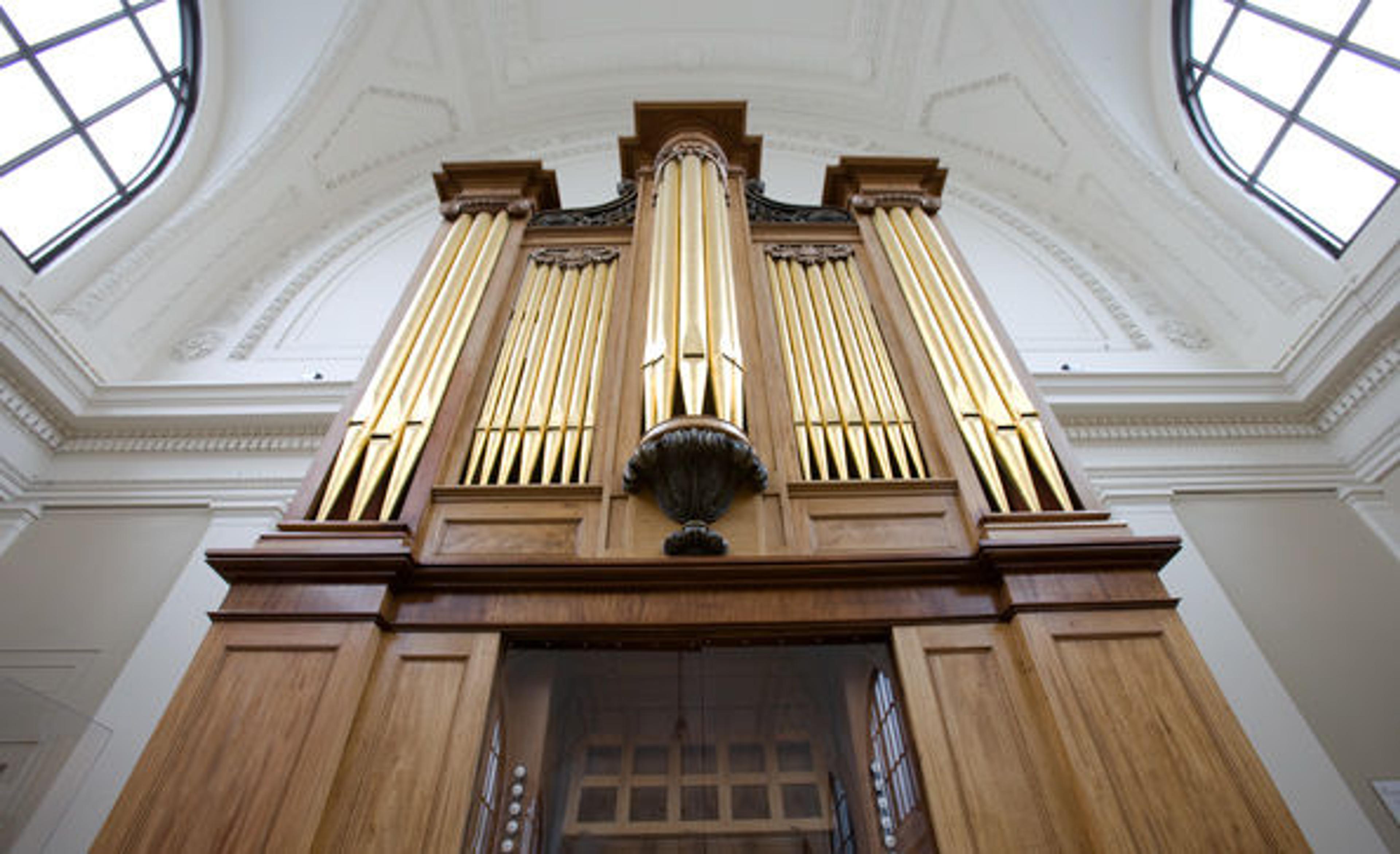
Thomas Appleton (American, 1785–1872). Pipe Organ, 1830. Wood, various materials. The Metropolitan Museum of Art, New York, Purchase, Margaret M. Hess Gift, in memory of her father, John D. McCarty, 1982 (1982.59)
«This week marks the celebration of Thanksgiving in the United States, and one of the popular hymns that will be used in religious services marking the date is the hymn "Nun danket alle Got," or "Now Thank We All Our God." The words to this hymn were written around 1636 by the Lutheran minister Martin Rinkart (1586–1649) and set to the tune known as the "Leuthen Chorale," attributed to Johann Crüger and written around 1647. The melody was later set by Johann Sebastian Bach in several of his cantatas and by Felix Mendelssohn in his Second Symphony.»
In 2012 organist Victoria Sirota performed and recorded Robert Sirota's Festival Prelude on Now Thank We All Our God here at the Met. The piece had been written as a commission for the First Parish Church of Brunswick, Maine, for the rededication of its historic nineteenth-century tracker organ after a period of extensive restoration. According to Sirota: "It is my homage to the music of the nineteenth-century American organist-composers of New England, particularly Dudley Buck (1839–1909)."
<p>Please enable flash to view this media. <a href="http://get.adobe.com/flashplayer/">Download the flash player.</a></p>
Victoria Sirota's performance was played on the Museum's pipe organ by Thomas Appleton (1785–1872), a renowned craftsman from Boston who built the instrument in 1830 for South Church in Hartford, Connecticut. The famed instrument has 836 pipes and is the earliest surviving organ by Appleton. The Appleton organ will again be heard on December 3 at 2:30 p.m., when organist Gregory Zelek presents a gallery concert featuring festive seasonal works.
Follow Jayson on Twitter: @JayKerrDobney
Related Link
Of Note: The Met's Mighty Pipe Organ